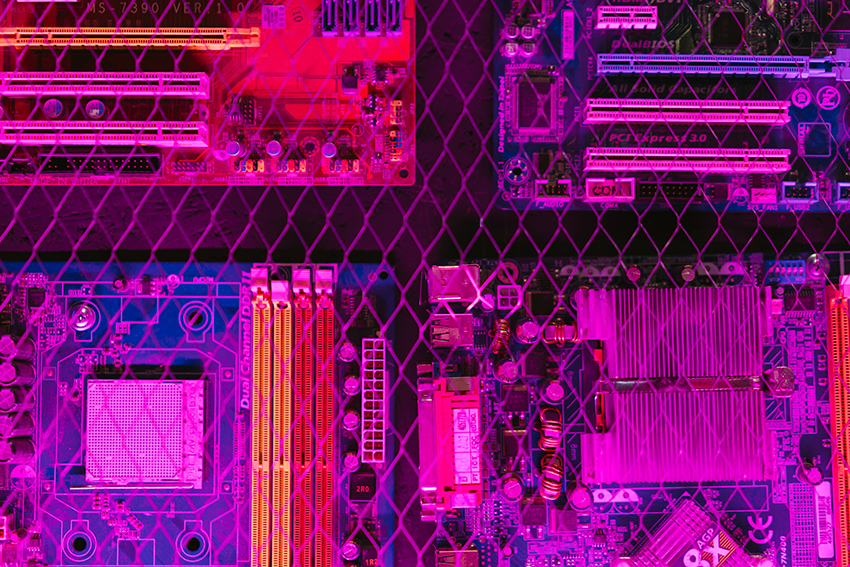Drop off your CV/Resume
We'd love to hear from you. Send us your CV/Resume and one of our team will be in touch.
Buoyed by biotechnology engineering, med tech solutions are evolving to change healthcare fo...

Buoyed by biotechnology engineering, med tech solutions are evolving to change healthcare for the better. The Life Sciences industry is always adapting to meet new and pressing demands within healthcare. Whether it’s drug discovery and development, implantable technology for 24/7 monitoring, or AI’s capabilities changing how medical professionals work, biotech and med tech are crucial in shaping the future of healthcare
With that said, there’s been an influx of AI-related med tech jobs and biotech jobs. This insightful guide will discuss the relationship between biotechnology and med tech and explore its influence in the Life Sciences industry.
Biotechnology and medical technology are two fields within the Life Sciences industry that carry influence in their own right. However, as healthcare develops, the relationship between biotechnology and medical technology becomes increasingly intertwined.
Biotechnology uses biological systems and living organisms to develop products and processes for specific scientific or medical purposes. Traditional biotechnology, with practices like fermentation, has existed for thousands of years. In the modern era, biotechnology is concerned with modifying genetic information and biological systems.
Its application is prevalent across multiple sectors, including in agriculture, industry, and food production. In healthcare, it can be used in the following areas:
Med tech is the development, manufacturing, and distribution of medical devices, equipment, and software that enhance diagnosis, monitoring, and treatment in healthcare. Significant strides have been made in the shaping of cutting-edge devices like:
Ultimately, med tech is the technology that improves patient care and health outcomes. Therefore, its continued development is imperative, and biotechnology engineering spearheads its advancements.
This interconnectivity between biotechnology and medical technology means roles are changing – and entirely new med tech jobs and jobs in biotechnology are being created. At the moment, there is an unprecedented demand for medical professionals adept with AI-related skills. Here’s an example of some of the jobs being generated:
Healthcare organizations have benefited in several areas due to biotech and med tech advancements. Here’s an overview:
Often referred to as precision medicine, this approach factors in a patient's genetics and lifestyle to provide tailored medical decisions, treatments, and practices. This shift away from traditional medicine now gives patients more strategic solutions. Here are the elements of personalized medicine:
This discipline aims to replace, repair, or regenerate cells, tissues, or organs to restore them to optimal functionality. Whether it is acute injuries or chronic diseases, biotechnology engineering and med tech solutions are combining to revolutionize healthcare and offer treatments for previously deemed incurable conditions. The core components of regenerative medicine include:
Biopharmaceuticals is the process of using biological sources and implementing biotechnology engineering to develop medicinal products. In contrast to traditional drugs, these macromolecules are much larger and are produced in living cells rather than in chemical synthesis. Examples of biopharmaceuticals include:
The benefits of biopharmaceuticals are plentiful. Invariably, biopharmaceuticals have a high specificity, which results in increased precision and fewer side effects when administering treatment. Biopharmaceuticals have proven to be effective when treating complex conditions such as autoimmune disorders and metabolic diseases. With advancements like Biobetters and Biosimilars, biopharmaceuticals are forecast to continue to influence med tech solutions.
As is customary with many fields within the Life Sciences industry, wearable and implantable tech has progressed significantly in recent years due to technological advancements. They have transformed healthcare by supplying new methods for continuous monitoring and tailored treatment. Wearable tech can monitor various health parameters without the need for invasive surgery. Examples of wearable tech include:
More complex conditions often require implantable tech. For example, deep brain stimulators can send electrical stimulation to certain parts of the brain to treat Parkinson’s disease. Implantable tech is especially useful for treating heart conditions. Patients can have pacemakers implanted to regulate heart rhythm in patients with arrhythmias, and Implantable Cardioverter Defibrillators (ICDs) remedy dangerous heart rhythms.
Artificial intelligence is at the forefront of transformative med tech solutions. AI and machine learning consistently pave the way for new and innovative methods that elevate healthcare delivery and patient outcomes. AI is strengthening several key areas in the healthcare industry:
Biotechnology engineering’s relationship with med tech is likely to continue developing. As it does, it will have a seismic impact on the Life Sciences industry and healthcare. It’s driven developments in personalized medicine, regenerative therapies, and biopharmaceuticals. With AI’s prominence growing, medtech solutions will advance, and patient outcomes will consistently improve.
These advancements also transform existing med tech jobs while generating many new jobs in biotechnology. There’s an increased demand for medical professionals with experience and expertise in genetic engineering, biopharmaceuticals, and especially AI-related technologies.
We’re an international talent provider passionate about the Life Sciences industry. Our approach to sourcing exceptional talent is centered around you. By listening, engaging, and gaining an understanding of your business needs, we’re able to get the right fit to help you be successful.
Connect with us today and discover how we can help elevate your business.